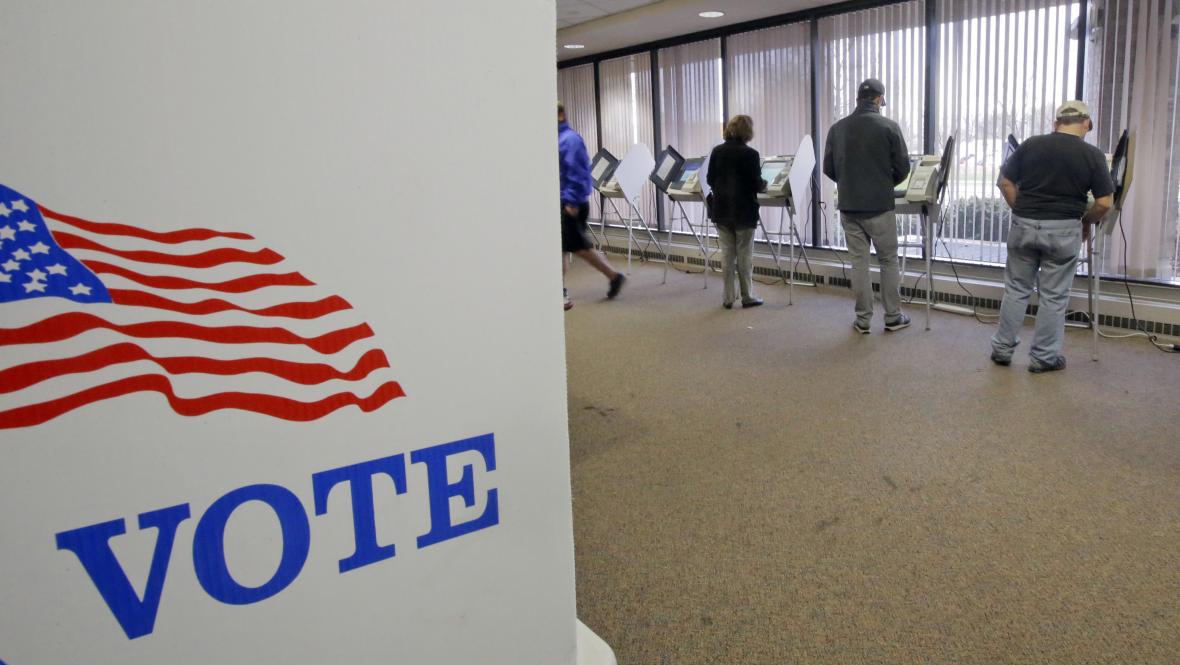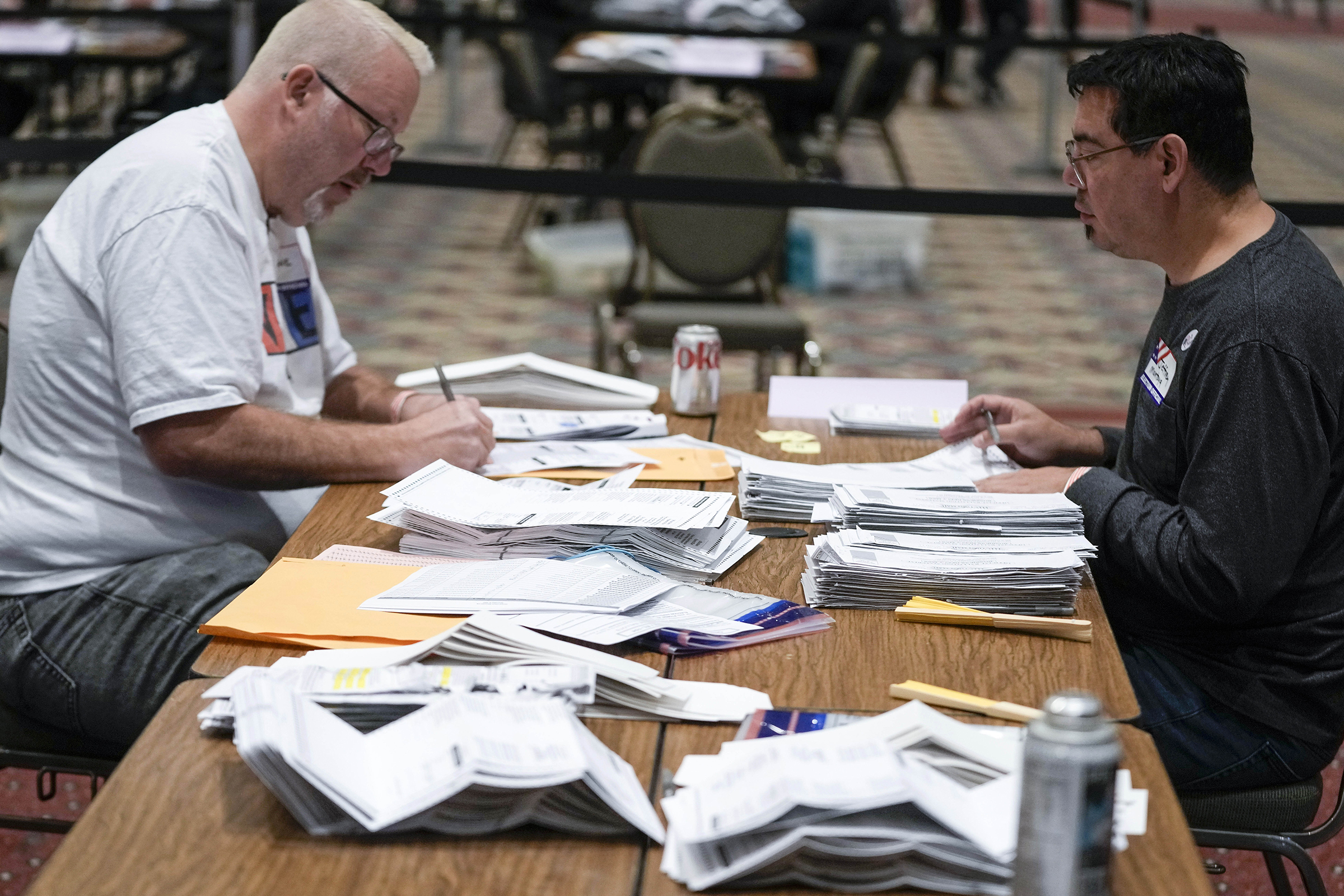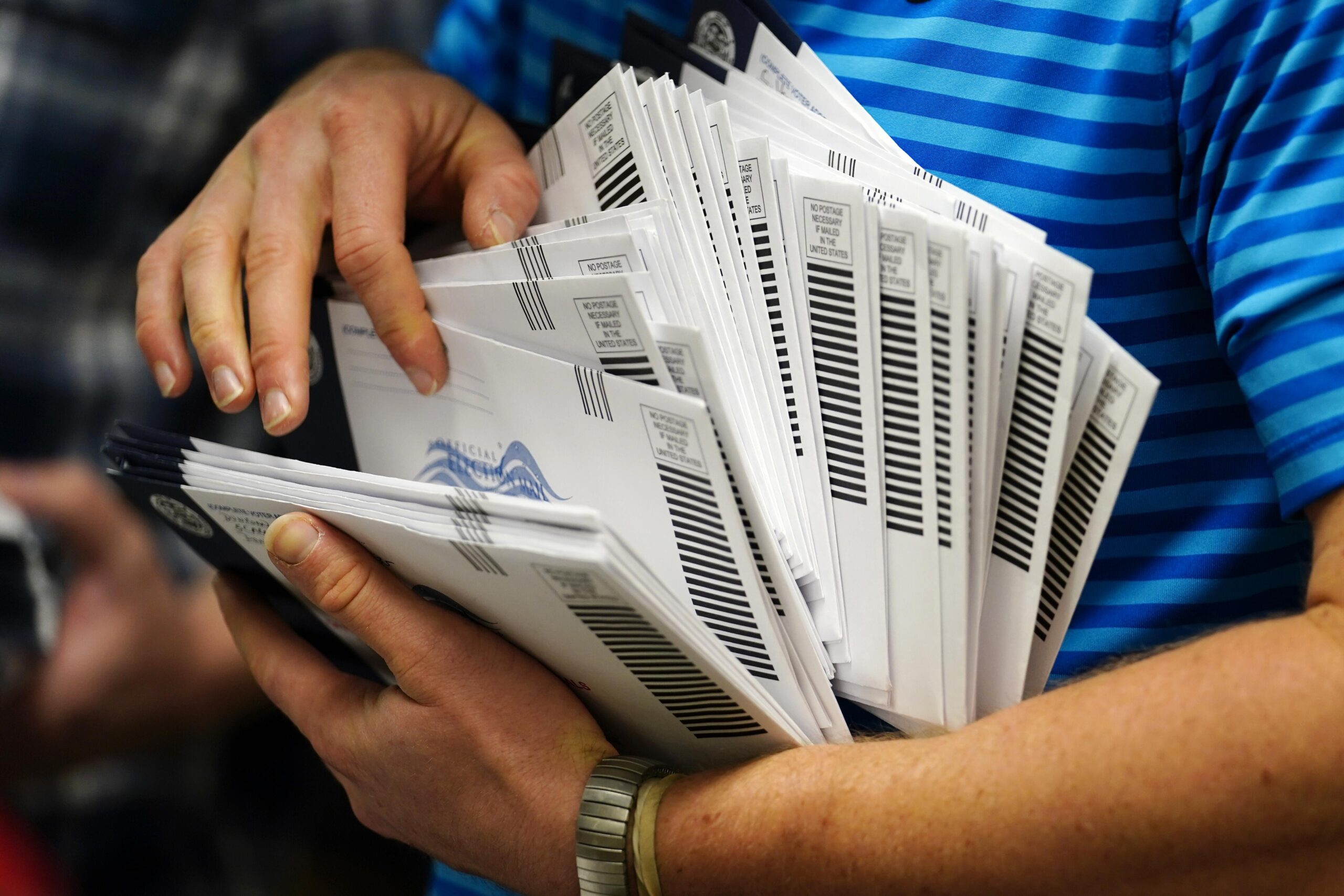Republican state Senators passed more than a dozen proposed changes to voting laws Tuesday, including plans that would ban private election grants, restrict absentee voting and give the Legislature more power over elections.
The proposals came at a time when Republican leaders maintained a focus on the 2020 election that a partial recount and multiple state and federal court decisions found President Joe Biden won by about 21,000 votes in Wisconsin.
Most of the plans are likely headed for vetoes by Democratic Gov. Tony Evers, while others may not make it to his desk. The proposal to ban private election funds could eventually be headed to voters.
News with a little more humanity
WPR’s “Wisconsin Today” newsletter keeps you connected to the state you love without feeling overwhelmed. No paywall. No agenda. No corporate filter.
Here’s a rundown of Tuesday’s Senate session, which was likely one of the last times the full Legislature will convene in 2022.
Banning private election grants
Private election grants would be banned in future elections under two measures that passed the Senate, including one that would amend the state constitution.
Republicans said their aim is to prohibit grants like those distributed in 2020 by the Center for Tech and Civic Life, an organization funded by Facebook CEO Mark Zuckerberg and his wife, Priscilla Chan.
While the organization has said it awarded grants to a total of 221 counties, cities, towns and villages in Wisconsin, the bulk of the funding went to Milwaukee, Madison, Green Bay, Kenosha and Racine, the state’s five largest cities. Republicans contended that gave Democrats a competitive advantage in the election.
“There’s an advantage being had with the private funds,” said Sen. Eric Wimberger, R-Green Bay. “We are entering a paradigm of private entities battling cities versus cities for control of the state.”
Democrats said there was nothing wrong with cities accepting the grants, which were upheld in state and federal court.
“The Republicans are very good at allegations and very bad at coming up with evidence,” said Sen. Robert Wirch, D-Kenosha. “You want this bill to go through — a constitutional amendment — with no proof.”
The plan that passed the Senate Tuesday has yet to pass the Assembly. Because it’s a proposed constitutional amendment, it would sidestep a likely veto by Gov. Tony Evers, but it would need to pass two consecutive sessions of the Legislature and be approved by voters to take effect. The soonest that could happen is 2023.
More obstacles for absentee voting
Other proposals passed by Republicans would, in a variety of ways, make absentee voting more difficult.
“There is extra documentation required to vote absentee, and that is just a fact,” said Sen. Kathy Bernier, R-Chippewa Falls. “If you don’t want to fill out the papers, then by gosh, show up at the polling place.”
Bernier, a former election clerk who chairs the Senate’s elections committee, said several of the ideas addressed issues raised by the nonpartisan Legislative Audit Bureau, though others would go further.
Democrats voted against the plans, saying lawmakers should be making it easier to vote, not harder.
“Apparently the problem you’re trying to solve is too many people voting conveniently,” said Sen. Chris Larson, D-Milwaukee.
The bills include:
- One that would reject absentee ballots if an accompanying witness certificate is missing information about the voter or the witness. It would reverse Wisconsin Elections Commission guidance in place since 2016 that lets clerks correct missing information on absentee ballot envelopes. Clerks are not allowed to adjust the ballot itself.
- Another that would no longer let voters sign up to receive absentee ballots for a full year, instead requiring them to sign up each election, submitting a digital copy of their state-issued ID each time. The same plan would ban the government — and private campaigns — from sending people absentee ballot applications, something the state did for 2.7 million people in 2020.
- Yet another that would make it harder for people to say they’re “indefinitely confined” in order to request an absentee ballot, an option a record 216,000 Wisconsin voters chose in the 2020 election. The plan was amended to make it easier for an indefinitely confined voter to prove their identity, which gained the support of the group Disability Rights Wisconsin. Three Republicans joined all Democrats in voting against it.
More power for the Legislature over elections
The Legislature, which has been under Republican control for the past decade, would also gain new power to control election policy in a variety of ways.
They include:
- A bill that would require the Wisconsin Elections Commission to submit all plans for federal election funds to the Legislature’s budget committee. The same plan would require all federal election guidance to be presented to the Legislature’s Joint Committee for the Review of Administrative Rules. Both panels are run by Republican majorities, giving them veto power over both federal funding and guidance.
- Another plan that would require all Wisconsin Elections Commission guidance documents for local clerks to be presented to the Joint Committee for the Review of Administrative Rules on a weekly basis. Like other bills, this would give the committee more veto power over election policy.
- A proposal that would give the Legislature the power to punish the Wisconsin Elections Commission, the state Department of Transportation or the state Department of Health Services if they don’t comply with election laws. It would give the Legislature’s budget committee the power to cut the agencies’ staffs or budgets if they fail to comply with voting laws.
Plan to help with counting absentee ballots could be dead
Senators also passed a bill that would let clerks start to process absentee ballots on the Monday before an election in an effort to speed the counting of absentee ballots.
The plan has the support of the City of Milwaukee, which is regularly scrutinized because of the time it takes to process an influx of absentee ballots in high-turnout elections. Milwaukee’s ballots are tabulated at a central count location.
In November 2020, Milwaukee officials warned before the election that it would take longer than usual to count a record number of absentee ballots. Despite that, former President Donald Trump falsely claimed after the election that the late night count was evidence of fraud.
While the plan passed the Senate with broad support from Republicans, it may not pass the Assembly before they adjourn for the year.
“I’d say it’s unlikely at this point,” said Assembly Majority Leader Jim Steineke of Kaukauna.
Assembly Republicans scheduled votes on other election bills for Thursday. The bill on processing absentee ballots was not among them.
Wisconsin Public Radio, © Copyright 2025, Board of Regents of the University of Wisconsin System and Wisconsin Educational Communications Board.







